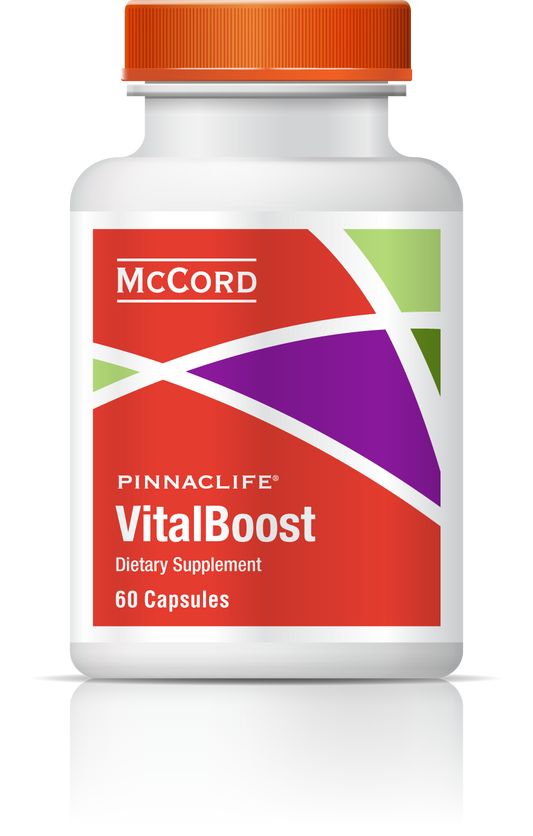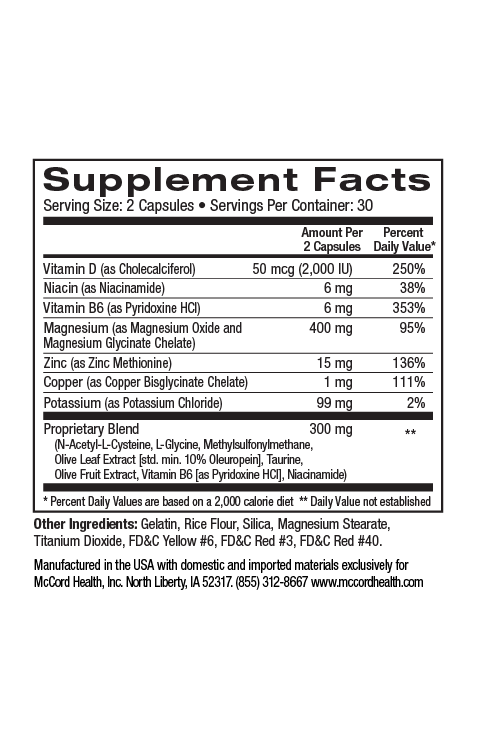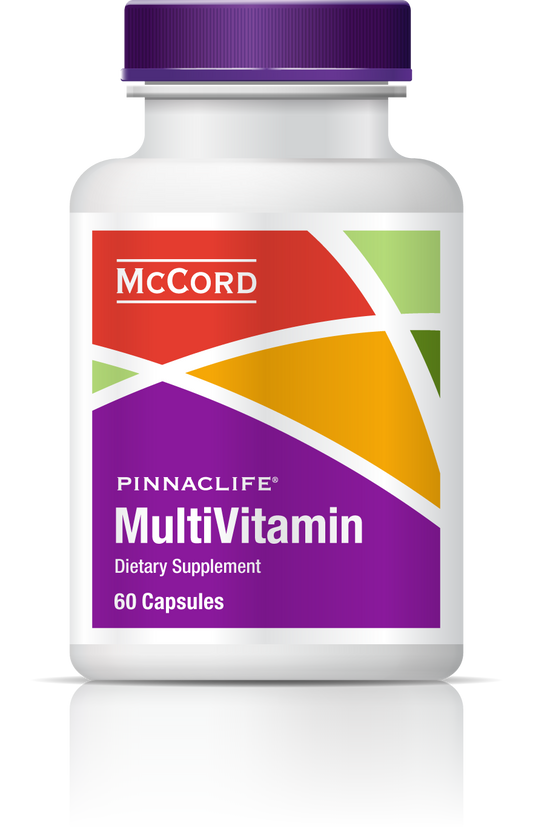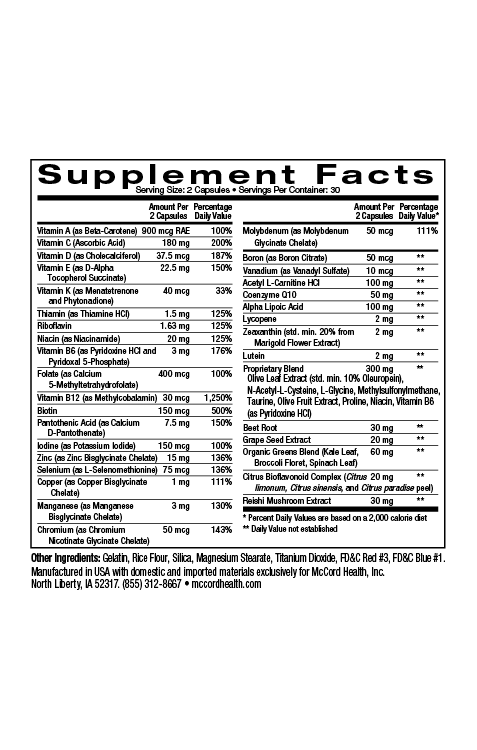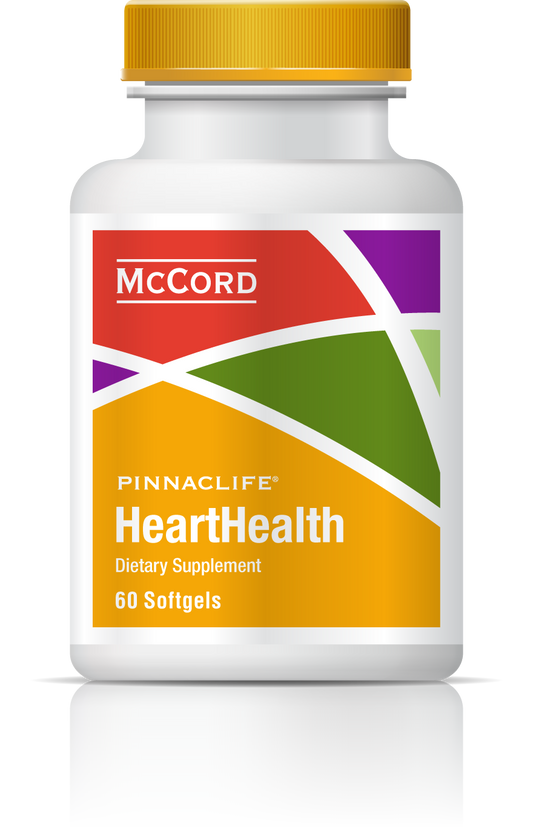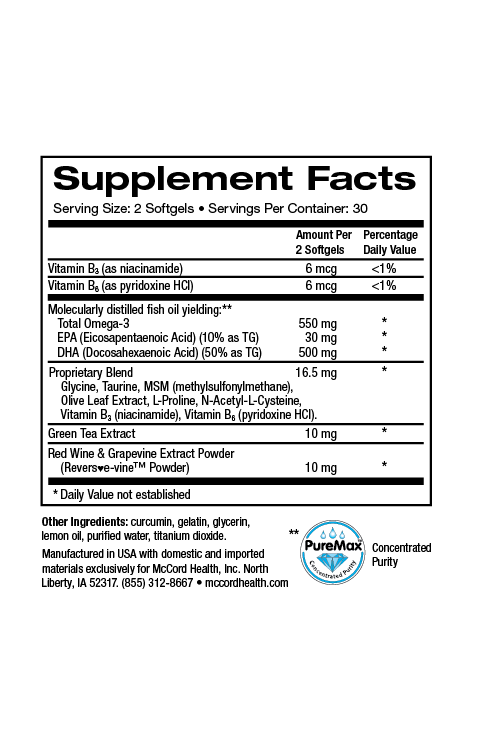Age-related eye disease studies (AREDS) have shown specific eye vitamins and nutrients can reduce risk of vision loss and blindness from conditions like age-related macular degeneration. Vitamin, mineral, and antioxidant supplementation may help people at risk of vision loss such as those with diabetes, high blood pressure, & heart disease.
- Age-related degeneration of the eyes occurs due to oxidative processes, free radical damage and inflammation
- Some damage is due to external sources like the sun as well as internal metabolic processes
- High blood pressure and diabetes can lead to vision loss
- An intensive study by the National Eye Institute identified important nutrients for eye health
- Supplements are a good way to incorporate eye vitamins and healthy nutrients
What Causes Damage to the eyes and vision?
Your eyes are particularly prone to age-related degeneration for a number of reasons, mostly related to oxidative processes, free radical damage, and inflammation. Some of these stresses come from external sources, like the sun, while others come from internal sources related to metabolic processes and other health conditions.
High Metabolic Rate of the Retina
The inside of your eyes are lined with a special layer of cells, called the retina, that is responsible for detecting the light we see. These cells have to work very hard to constantly process everything we are seeing and transmit those signals to the brain. Because of this, the cells in the retina have a very high metabolic rate, meaning they produce a lot of metabolic waste including free radicals. Free radicals can accumulate causing damage if they are not quickly neutralized and removed.
Ultraviolet Light
Ultraviolet light is a form of radiation that can cause damage to cells, and also some of the proteins in the lens of your eye. Unprotected exposure to ultraviolet light can cause damage to the eyes and cause conditions such as cataracts.
You can protect your eyes from the effects of ultraviolet radiation by wearing sunglasses capable of filtering out ultraviolet radiation before it reaches your eye. For even more protection, you can provide your body with antioxidant support and eye vitamins that help protect against the damaging effects of ultraviolet radiation from the inside as well.
High Blood Pressure
Since the retina has such a high metabolic rate, it depends on good blood flow to provide a constant supply of oxygen and nutrients while removing metabolic waste. This means the retina is packed full of tiny capillaries that can be damaged by excessively high blood pressure, subsequently causing damage to the retina. This condition is called hypertensive retinopathy and can quickly lead to vision loss. The eye is so sensitive to high blood pressure that doctors can detect visual signs of high blood pressure by examining your eyes.
Diabetes
Diabetic retinopathy is one of the leading causes of blindness in adults and it is related to a combination of elevated blood sugars and cardiovascular problems that are commonly seen with diabetes including high blood pressure and high cholesterol. People with diabetes are at a much higher risk of developing vision loss and blindness as they age.
Preventing Age-Related Eye Diseases
Many nutritional approaches to protecting the eyes from age-related diseases are focused on addressing the oxidative processes that generate free radicals and subsequent damage and inflammation.
Age-Related Eye Disease Studies (AREDS)
In 2001 the National Eye Institute published the results of an intensive study (called AREDS) looking at the role of some specific nutrients in preventing age-related eye diseases including macular degeneration and cataracts. The results of the AREDS indicated significant benefits especially for age-related macular degeneration.
The researchers conducted a follow-up AREDS 2 trial where they replaced the beta-carotene with a different form of Vitamin A called zeaxanthin. They also added Omega-3 oils DHA and EPA, both known to play an important role in eye health. Lastly, they reduced the amount of zinc from 80 mg down to 25 mg.
The results of AREDS II indicated that lutein and zeaxanthin were both safe and effective forms for Vitamin A in targeted nutritional approaches for eye health with similar benefits and improved safety in comparison to the extremely high beta-carotene doses used in AREDS I.
Researchers then looked at the results of both AREDS and AREDS 2 studies and combined the data to produce a final recommendation based on the findings of both studies. The nutrients from both studies and the combined data are shown here:
It should be noted that some nutrients like the Omega-3's DHA and EPA are still considered important for eye health, but since they did not appear to provide significant results in these studies in particular, they were not included in the final recommendation. Several other studies, however, indicate that DHA and EPA likely provide benefits related to eye health and vision.
7 Foods for promoting eye health
- Dark Leafy Greens like kale and spinach are excellent sources for beta-carotene, Vitamin C, Vitamin E, lutein, zeaxanthin, plus minerals and antioxidants.
- Red Peppers are full of Vitamin A and other eye-healthy carotenoids including beta-carotene, lutein, lycopene, zeaxanthin, and beta-cryptoxanthin.
- Carrots and Sweet Potatoes contain a high amount of beta carotene plus other eye healthy carotenoids like lutein and zeaxanthin.
- Olives and olive oil are also excellent sources of antioxidants like hydroxytyrosol and oleuropein plus Vitamin E and Omega-3 oils.
- Broccoli and other cruciferous vegetables like Brussels sprouts contain Vitamin A, Vitamin C, Vitamin E, and natural sulfur-containing antioxidants like sulforaphane that are known to protect the eyes from free radical damage.
- Eggs contain many eye-healthy nutrients like Coenzyme Q10 (CoQ10), zinc, lutein, and zeaxanthin. Note that these nutrients are concentrated in the yolks - in fact the lutein and zeaxanthin provide the yellow and orange coloration in both egg yolks and certain fruits and vegetables. Some eggs also contain a significant amount of Omega-3's depending on the diet fed to the chickens. Look for farm-fresh eggs from free-range chickens fed high Omega-3 diets.
- Oysters are one of the most potent food sources of zinc, plus they also provide Omega-3 fatty acids.
AREDS Eye Vitamins and Supplements
Incorporating some of the foods above is definitely a good start for protecting your eyes, but supplements are a good way to ensure you are getting adequate amounts of key nutrients to provide the most benefits.
You've likely seen various eye vitamins at the store promoting that they contain the AREDS or AREDS2 nutrients, and there are a lot to choose from. Most of the products only provide the specific nutrients highlighted in the ARED studies and most also come with a significant price tag.
However, some high quality multivitamins will include the AREDS and AREDS2 nutrients PLUS a full spectrum of vitamins, minerals, and other nutrients that can provide additional health benefits for your entire body. For example, the Pinnaclife Olivamine MultiVitamin from McCord Research contains all of the AREDS ingredients, plus a full spectrum of vitamins, minerals, and antioxidants needed for overall general health. It also contains several whole foods known to be good for eye health including kale, spinach, and olives.
Disclaimer: These statements have not been reviewed by the FDA. These products are dietary supplements and are not intended to treat, cure, or prevent any disease. The decision to use these products should be discussed with a trusted healthcare provider. The authors and the publisher of this work have made every effort to use sources believed to be reliable to provide information that is accurate and compatible with the standards generally accepted at the time of publication. The authors and the publisher shall not be liable for any special, consequential, or exemplary damages resulting, in whole or in part, from the readers’ use of, or reliance on, the information contained in this article. The publisher has no responsibility for the persistence or accuracy of URLs for external or third party Internet websites referred to in this publication and does not guarantee that any content on such websites is, or will remain, accurate or appropriate.

